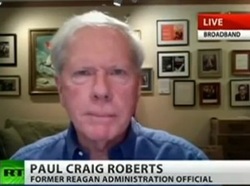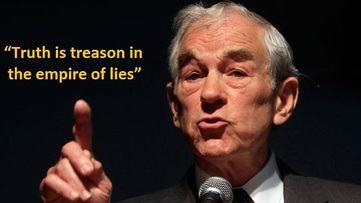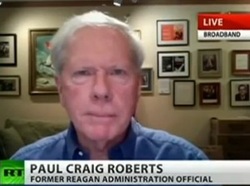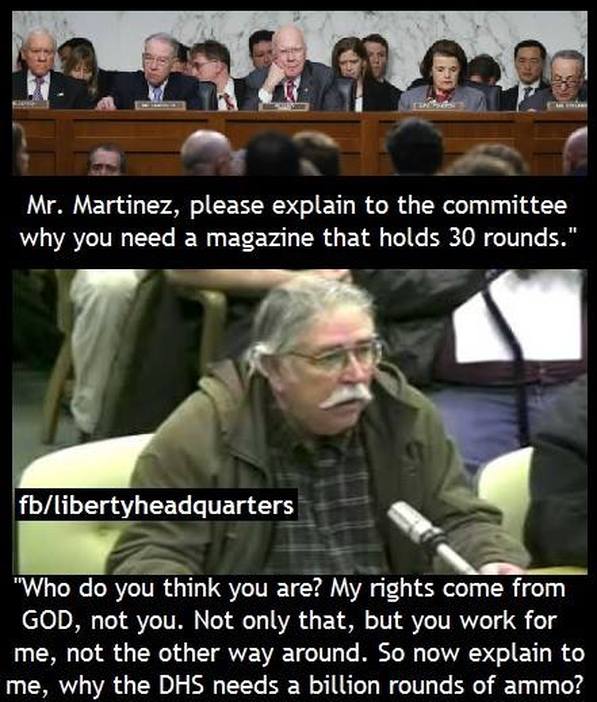 Paul Craig Roberts discusses the recent deals between Russia and China and the allies of the US, like Australia, increasing doing deals with China in their respective currencies. He also discusses the fading influence the US has to bend other countries to their will. Listen the KWN interview here From thejuicemedia Published on May 23, 2014 For more Juice News visit thejuicemedia channel: http://www.youtube.com/thejuicemedia What is Net Neutrality, and why is it so important to the future of the Internet? Find out by joining Robert Foster as he takes a whimsical trip into the World Wide Web, with its founder Tim Berners-Lee. From RT Published on May 20, 2014 The spying blame game the US plays out with China has begun a new chapter, with Washington charging five Bejing officials with hacking into American companies. Ironic as the NSA has recently been accused of stuffing Cisco routers with Trojan network sniffers. RT's Gayane Chichakyan explains how the scheme's believed to have worked. This gas deal smells stronger than any gas leak in history.  By Ron Paul Article link Last week World Bank economists predicted that China would soon displace the United States as the world’s largest economy. The fact that this one-time economic basket case is now positioned to surpass the US is one more sign of the damage done to American prosperity by welfare, warfare, corporatism, and fiat money. Some commentators have predicted that China’s reign as the world’s largest economy would not last long. This may be true. While China has made great strides since adopting free-market reforms in the 1970s, China is still run by an authoritarian government whose economic policies distort the market in order to benefit state-favored industries. These state-favored businesses are often controlled by politically-powerful individuals. What many of these commentators fail to notice is that the American government pursues many of the same flawed policies as the Chinese. For example, because of the increase in regulations, subsidies, and bailouts, many American businesses are putting more resources into manipulating the political process than producing goods and services desired by consumers. Many big businesses even lobby Congress and the federal bureaucracy for new regulations on their industries. They do this because big business can more easily absorb the costs of complying with the new regulations that force their smaller competitors out of business. China is regularly criticized by American protectionists for subsidizing its export industries. However, the US government does the same thing via programs such as the Export-Import Bank. China is also criticized for manipulating the value of its currency to make its exports more attractive to foreign consumers. This may well be true, but China is hardly unique in this respect. Throughout its history, the Federal Reserve has manipulated both the domestic and international economy, often working in partnership with foreign central banks. The Federal Reserve’s inflationary policies benefit big banks, politically-connected businesses, and big-spending politicians at the expense of the American people. Anyone interested in helping improve the American people’s economic situation should focus on changing America’s monetary policy, not China’s. Ironically, many of the same politicians who denounce China’s monetary policy benefit from Chinese purchases of America’s debt. If China stopped making large purchases of US debt, the Federal Reserve would be forced to monetize even more debt, thus risking hyperinflation. So the best thing Congress could do to make it more difficult for China to manipulate the global economy is cut federal spending. One advantage China has over the US is that the Chinese government does not waste money on a hyper-interventionist foreign policy. The United States government spent approximately $752 billion on the military in fiscal year 2013. In contrast, China spent approximately $188 billion. While China may be increasing its military spending, it has a long way to go to catch up to the United States. It is difficult to see how the American people, other than those who run or work for the military-industrial complex, benefit from this spending. Military spending, like all government spending, hampers private sector growth by taking resources away from investors, entrepreneurs, and consumers while contributing significantly to the national debt. In contrast, a return to the policy of peace and free trade would allow those resources to be used by entrepreneurs to create new businesses and new jobs. News that China is soon to surpass the United States as the largest economy in the world is a stark reminder of how the American people are harmed by the welfare-warfare state, crony capitalism, and fiat currency. The only way to avoid continuing collapse is to finally reject an interventionist foreign policy, stop bailing out and subsidizing politically powerful industries, and restore a free market in money.  By Paul Craig Roberts Essay link Washington has no intention of allowing the crisis in Ukraine to be resolved. Having failed to seize the country and evict Russia from its Black Sea naval base, Washington sees new opportunities in the crisis. One is to restart the Cold War by forcing the Russian government to occupy the Russian-speaking areas of present day Ukraine where protesters are objecting to the stooge anti-Russian government installed in Kiev by the American coup. These areas of Ukraine are former constituent parts of Russia herself. They were attached to Ukraine by Soviet leaders in the 20th century when both Ukraine and Russia were part of the same country, the USSR. Essentially, the protesters have established independent governments in the cities. The police and military units sent to suppress the protesters, called “terrorists” in the American fashion, for the most part have until now defected to the protesters. With Obama’s incompetent White House and State Department having botched Washington’s takeover of Ukraine, Washington has been at work shifting the blame to Russia. According to Washington and its presstitute media, the protests are orchestrated by the Russian government and have no sincere basis. If Russia sends in military units to protect the Russian citizens in the former Russian territories, the act will be used by Washington to confirm Washington’s propaganda of a Russian invasion (as in the case of Georgia), and Russia will be further demonized. The Russian government is in a predicament. Moscow does not want financial responsibility for these territories but cannot stand aside and permit Russians to be put down by force. The Russian government has attempted to keep Ukraine intact, relying on the forthcoming elections in Ukraine to bring to office more realistic leaders than the stooges installed by Washington. However, Washington does not want an election that might replace its stooges and return to cooperating with Russia to resolve the situation. There is a good chance that Washington will tell its stooges in Kiev to declare that the crisis brought to Ukraine by Russia prevents an election. Washington’s NATO puppet states would back up this claim. It is almost certain that despite the Russian government’s hopes, the Russian government is faced with the continuation of both the crisis and Washington puppet government in Ukraine. On May 1 Washington’s former ambassador to Russia, now NATO’s “second-in-command” but the person who, being American, calls the shots, has declared Russia to no longer be a partner but an enemy. The American, Alexander Vershbow, told journalists that NATO has given up on “drawing Moscow closer” and soon will deploy a large number of combat forces in Eastern Europe. Vershbow called this aggressive policy deployment of “defensive assets to the region.” In other words, here we have again the lie that the Russian government is going to forget all about its difficulties in Ukraine and launch attacks on Poland, the Baltic States, Romania., Moldova, and on the central Asian states of Georgia, Armenia, and Azerbaijan. The dissembler Vershbow wants to modernize the militaries of these American puppet states and “seize the opportunity to create the reality on the ground by accepting membership of aspirant countries into NATO.” What Vershbow has told the Russian government is that you just keep on relying on Western good will and reasonableness while we set up sufficient military forces to prevent Russia from coming to the aid of its oppressed citizens in Ukraine. Our demonization of Russia is working. It has made you hesitant to act during the short period when you could preempt us and seize your former territories. By waiting you give us time to mass forces on your borders from the Baltic Sea to Central Asia. That will distract you and keep you from the Ukraine. The oppression we will inflict on your Russians in Ukraine will discredit you, and the NGOs we finance in the Russian Federation will appeal to nationalist sentiments and overthrow your government for failing to come to the aid of Russians and failing to protect Russia’s strategic interests. Washington is licking its chops, seeing an opportunity to gain Russia as a puppet state. Will Putin sit there with his hopes awaiting the West’s good will to work out a solution while Washington attempts to engineer his fall? The time is approaching when Russia will either have to act to terminate the crisis or accept an ongoing crisis and distraction in its backyard. Kiev has launched military airstrikes on protesters in Slavyansk. On May 2 Russian government spokesman Dmitry Peskov said that Kiev’s resort to violence had destroyed the hope for the Geneva agreement on de-escalating the crisis. Yet, the Russian government spokesman again expressed the hope of the Russian government that European governments and Washington will put a stop to the military strikes and pressure the Kiev government to accommodate the protesters in a way that keeps Ukraine together and restores friendly relations with Russia. This is a false hope. It assumes that the Wolfowitz doctrine is just words, but it is not. The Wolfowitz doctrine is the basis of US policy toward Russia (and China). The doctrine regards any power sufficiently strong to remain independent of Washington’s influence to be “hostile.” The doctrine states: “Our first objective is to prevent the re-emergence of a new rival, either on the territory of the former Soviet Union or elsewhere, that poses a threat on the order of that posed formerly by the Soviet Union. This is a dominant consideration underlying the new regional defense strategy and requires that we endeavor to prevent any hostile power from dominating a region whose resources would, under consolidated control, be sufficient to generate global power.” The Wolfowitz doctrine justifies Washington’s dominance of all regions. It is consistent with the neoconservative ideology of the US as the “indispensable” and “exceptional” country entitled to world hegemony. Russia and China are in the way of US world hegemony. Unless the Wolfowitz doctrine is abandoned, nuclear war is the likely outcome. |
1776Tracking the progress of the Second American Revolution and Geopolitical events. Follow our CEO on Twitter
Archives
April 2017
|

|
|

 RSS Feed
RSS Feed